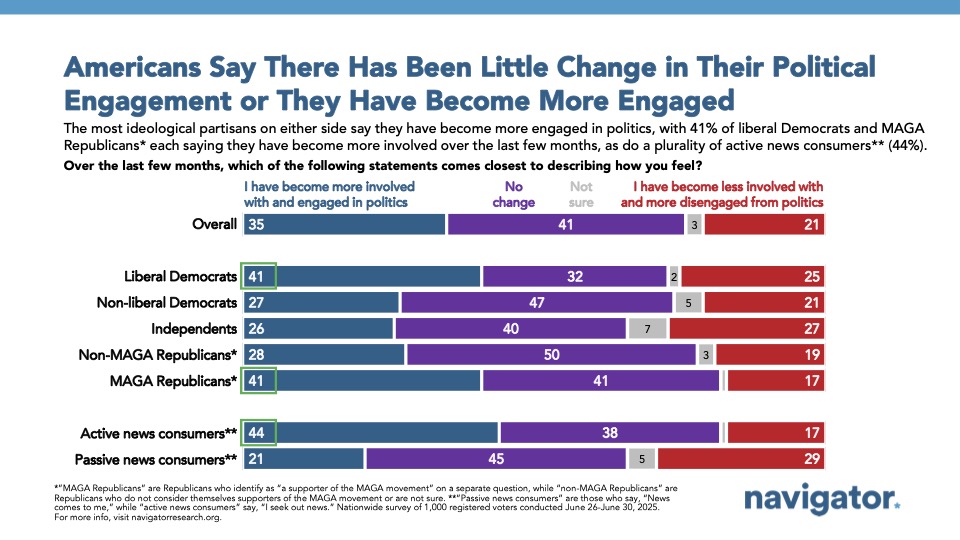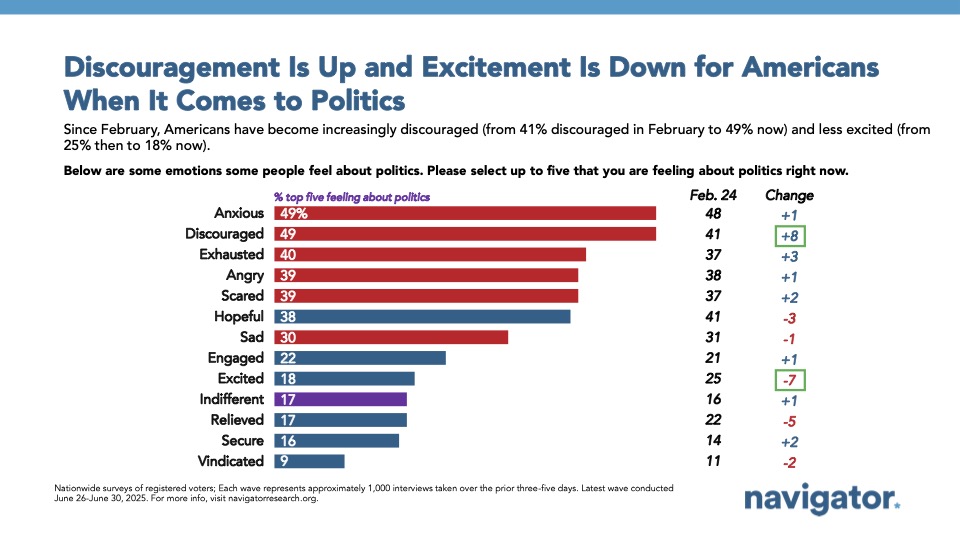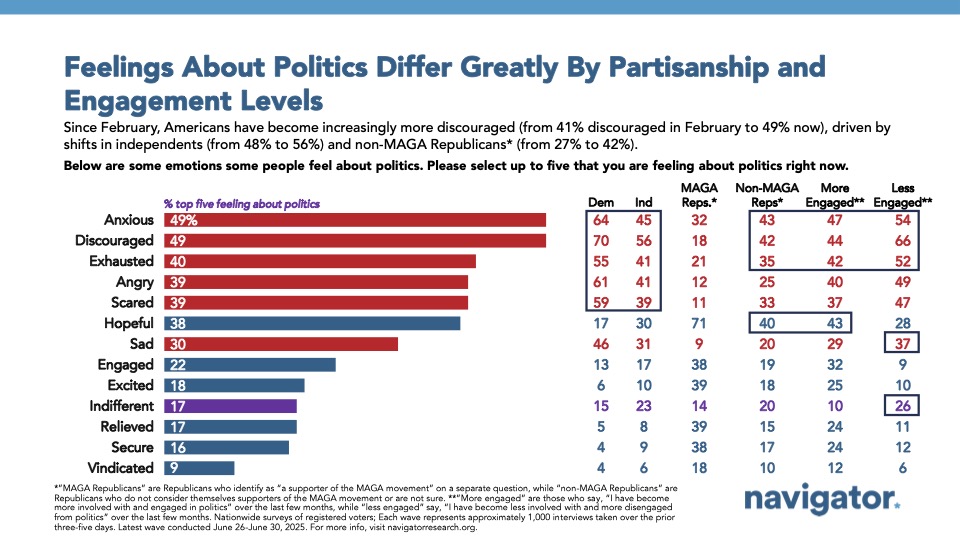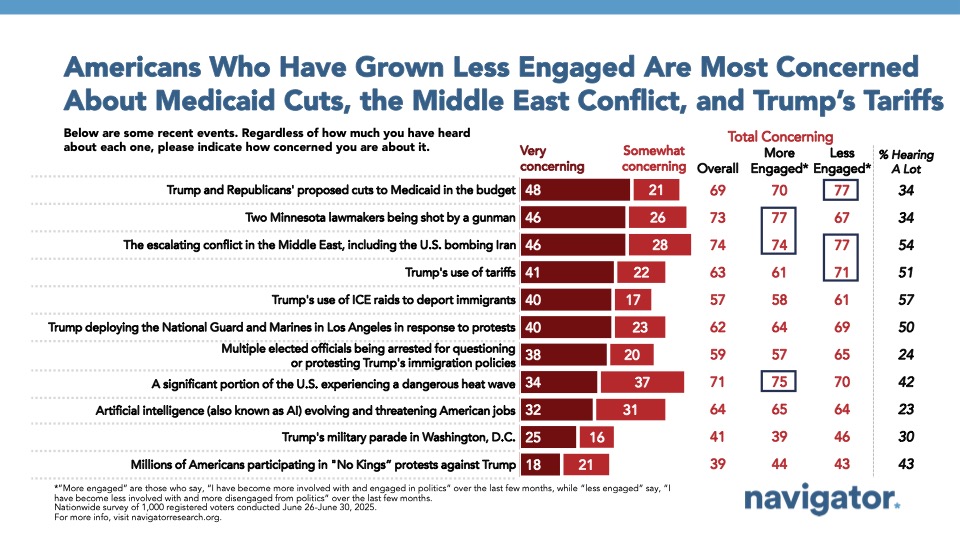Poll: Political Engagement
This Navigator Research report covers Americans’ attitudes toward politics, including whether they have become more or less engaged and the emotions they experience regarding the political climate.
Who Has Become Less Engaged in Politics?
Pluralities of Americans say there has been no change in how engaged they are in politics over the past couple of months (41 percent no change, 35 percent more engaged, 21 percent less engaged). Among those who have become less engaged in politics over the past couple of months are:
- 32 percent of Americans who are unfavorable to both Democrats and Republicans.
- 25 percent of Harris voters, compared to just 18 percent of Trump voters.
- 26 percent of Americans working blue-collar jobs.
- 24 percent of women under the age of 55.

Americans are Feeling Anxious, Discouraged, and Exhausted
Nearly half of Americans cite feeling “anxious” when it comes to politics (49 percent). A similar majority also cites feeling “discouraged” (49 percent) — though among those who have become less engaged in politics, the share increases to 66 percent. Similarly, Americans who have become less engaged in politics over-index on feeling “exhausted” (52 percent less engaged, 42 percent more engaged).
Women are more likely to feel “scared” about the state of politics than men (47 percent of women, 29 percent of men).
Only 12 percent of Americans who have become less engaged in politics feel “secure,” signaling that the decline in engagement is correlated with uncertainty in the political climate.


Less Engaged Americans Are Concerned about Medicaid Cuts, Tariffs, and ICE Raids
Over three-quarters of Americans who have become less engaged in politics are concerned about the cuts to Medicaid in the Republican budget (77 percent less engaged, 70 percent more engaged). A similar majority of less engaged Americans is concerned about Trump’s use of tariffs (71 percent – 61 percent more engaged). Less politically engaged Americans also over-index on feeling concerned about Trump’s use of the National Guard in the protests against ICE in Los Angeles (69 percent less engaged, 64 percent more engaged).
Note: Less politically engaged Americans rate the economy more negatively – 77 percent of less engaged Americans rate the economy negatively compared to 64 percent of Americans overall. The group is also more uneasy about their personal financial situations – with 67 percent feeling uneasy compared to 53 percent of Americans overall.

